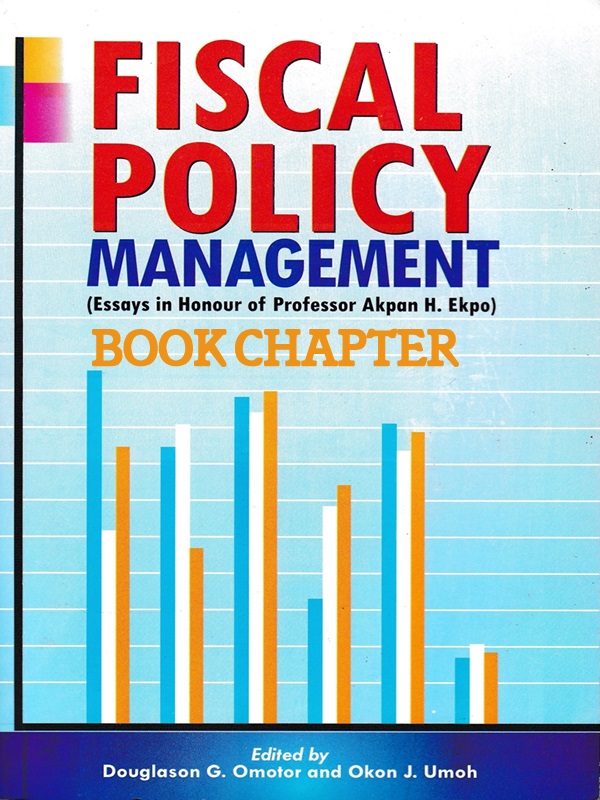CHAPTER 1 – Overview of Contemporary Issues in Fiscal Policy Management in Nigeria by Douglason G. Omotor
$1.50
Introduction
Fiscal policy is the use of government spending, taxation, transfers and net lending to influence the workings of the economy. Government spending relates to state or public expenditure to provide social services like education, electricity, health, water, defense, roads, etc. Taxation on the other hand is made up of the various instruments and sources of revenue government uses to generate revenue albeit, required to finance government spending. Thus, in fiscal policy management, government spending and taxation are the major apparatus government typically uses to manipulate the macroeconomic objectives. Like everyone, government can also borrow (public debt) to spend. Through fiscal policy, unemployment rate can improve, inflation can be controlled and business cycles stabilized. Specifically, fiscal policy at the macro level plays an important role in ensuring macroeconomic stability, which is a prerequisite for achieving and maintaining economic growth. At the micro level, through well-designed tax and spending policies, it can be used to boost employment, investment, and productivity” (IMF, 201 5:1 ).
Dr. Okon Umoh
Questions and Answers
You are not logged in
